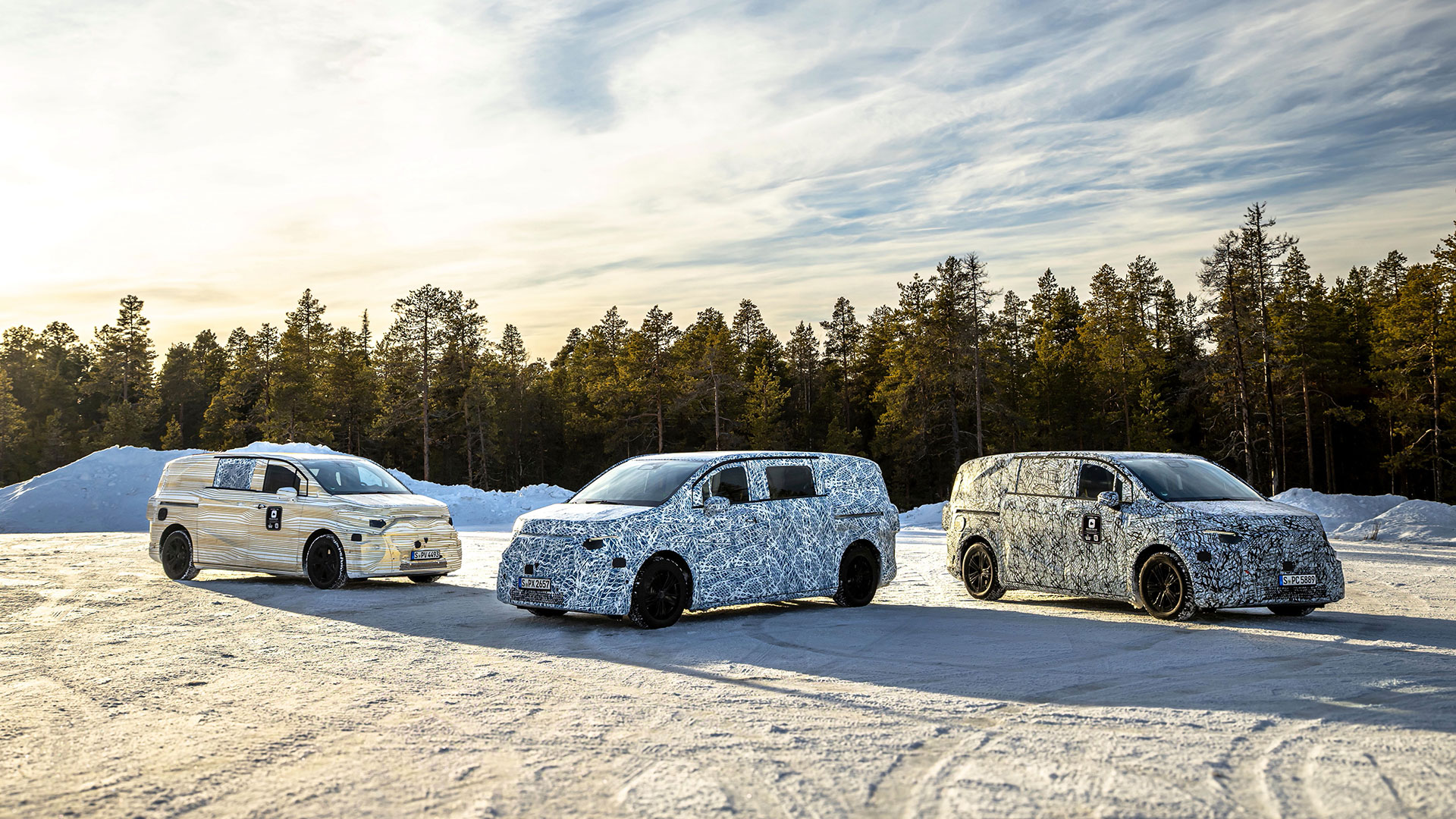Mercedes-Benz Vans has announced that all new vehicles will be constructed using the modular and flexible Mercedes-Benz Van Architecture. Starting in 2026, the company will introduce all-electric models under the Van Electric Architecture, marking a significant shift for the brand. Following this, the Van Combustion Architecture will be launched, featuring modern combustion engine vans. This new vehicle architecture aims to distinctly separate luxury segment vehicles from premium commercial transporters.
The forthcoming model range is designed to meet diverse customer requirements, offering spacious and versatile vehicles intended for both high-end limousine transport and luxurious family use. These multipurpose vehicles (MPVs) are currently undergoing winter testing in Arjeplog, Sweden, to assess their performance in extreme weather conditions.
Test drives conducted near the Arctic Circle are part of a thorough testing strategy that examines various climate zones and routes. This testing focuses on evaluating vehicle dynamics, as well as the heating and ventilation capabilities of the vehicles’ spacious interiors. The test vehicles are subjected to rigorous assessments in harsh conditions, including temperatures as low as -22 degrees Fahrenheit and on icy roads. These evaluations are essential for the development process and represent a critical milestone in the vehicle’s evolution.

Dr. Andreas Zygan, Head of Development at Mercedes-Benz Vans, stated, “Our future MPVs herald a new era. To achieve our ambitious development goals, we are taking advantage of all the opportunities offered by digitalization.” He noted that the Mission Control Center has enabled real-time data optimization from test drives, which has helped to reduce testing timelines and enhance product development efficiency.
Cold-weather testing primarily focuses on understanding vehicle behavior on slippery surfaces, where ice and snow can significantly decrease grip, impacting acceleration, braking, and maneuverability. Advanced suspension systems are incorporated to improve the driving experience, with features such as rear-axle steering to enhance handling and reduce the turning radius. The new architecture also accommodates 4MATIC all-wheel drive, broadening the vehicles’ applications and ensuring they meet high performance standards in various weather conditions.
All new models will include the latest version of the Mercedes-Benz Operating System and will support an 800-volt charging system along with a 22-kW AC charger. Attention is also given to thermal management and interior comfort, with specialized cold chambers used to prepare vehicles for operation in low temperatures. The charging behavior and management systems are rigorously tested and optimized.
Early evaluations, conducted midway through the multi-week testing phase, indicate that the vehicles are performing well under the demanding conditions presented by icy and snowy environments.

